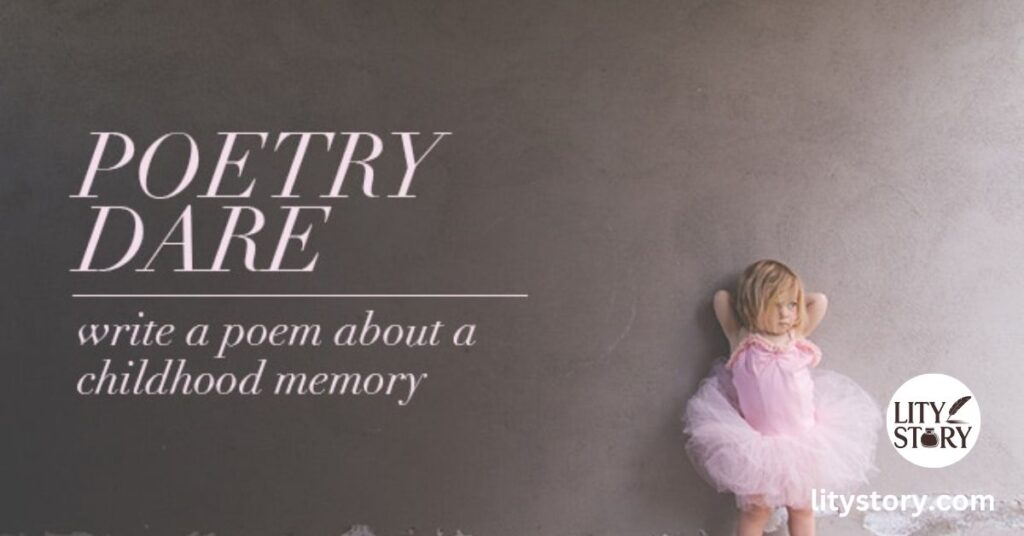Poetry often evokes mixed feelings. While many appreciate its beauty, others find it pretentious. This article aims to explore how good poems can break down those barriers, particularly focusing on short poems. We will analyze why poetry sometimes seems inaccessible, highlight the beauty of brevity, and celebrate the works of renowned poets like Ted Kooser, William Carlos Williams, and Ezra Pound.
As we dive deeper into the world of short poetry, we’ll explore the technical aspects of writing, the emotional depth they can convey, and provide prompts to inspire your own poetic journey.
Why Poetry Is Often Considered Pretentious
The Mask of Words
In rooms of silence, where whispers bloom,
Words wear masks, hiding the gloom.
Complex thoughts twist like vines,
Drowning truths in intricate lines.
Yet beneath the surface, simplicity glows,
A heart that beats, a story that flows.
Poetry often comes with lofty language and complex themes, making it seem elitist. The intricate vocabulary and deep metaphor can alienate readers. People may feel they need a degree to appreciate poetry fully. This perception can lead to a belief that poetry is reserved for an intellectual elite, excluding those who might not share the same academic background.
The Historical Context of Pretentiousness in Poetry
Historically, poetry has sometimes been viewed as an art form meant for the educated or upper classes. This association with privilege stems from the origins of poetry, which was often recited in salons or literary gatherings where only the literate participated. Such exclusivity cultivated an air of pretentiousness around poetry.
Cultural Influences
Different cultures have contributed to the notion of pretentiousness in poetry. For instance:
- Classical Poetry: Ancient Greek and Latin poets, such as Homer and Virgil, wrote in complex structures that required education to understand fully.
- Romanticism: Poets like Lord Byron and John Keats often wrote about lofty themes, sometimes alienating common readers.
- Modernism: The early 20th century introduced a wave of experimentation in form and language that, while innovative, often felt inaccessible.
Bridging the Gap
Despite these historical challenges, the advent of free verse and the spoken word movement has opened doors for more inclusive forms of poetry. Today, many poets strive to make their work relatable and accessible, breaking down the barriers that once defined the genre.
The Beauty of Short Poems
Brevity’s Charm
A single breath, a fleeting glance,
In a world of chaos, a quiet dance.
Moments caught in a gentle embrace,
Short poems paint the human race.
With fewer strokes, they touch the soul,
A whisper of joy, a feeling whole.
Short poems shine in their ability to convey profound emotions concisely. With fewer words, they can capture the essence of feelings and experiences, making poetry accessible to everyone. This brevity invites readers to engage without the intimidation of complex structures or obscure meanings. The beauty of short poems lies in their power to evoke strong emotions quickly.
Examples of Notable Short Poems
Short poems have a unique charm. Here are some exemplary works that illustrate their effectiveness:
- “The Red Wheelbarrow” by William Carlos Williams: This poem captures a moment in a rural setting with just a few words, showcasing the beauty in simplicity.
- “In Just” by E.E. Cummings: Cummings’ playful language and structure draw readers into the joy of childhood and spring.
- “I Carry Your Heart With Me” by E.E. Cummings: This poem expresses deep love in a concise format, proving that emotions can resonate deeply without lengthy explanations.
The Impact of Short Poems
Short poems can evoke a range of emotions in just a few lines. Their brevity encourages readers to pause and reflect, allowing the message to sink in. Whether it’s joy, sadness, nostalgia, or contemplation, short poems resonate with the human experience in a profound way.
Breaking Down What Makes a Poem ‘Good’
Essence in a Line
What makes a poem good, you ask?
It’s not the complexity of the task.
But feelings shared in a tender glance,
A glimpse of life, a fleeting chance.
With clarity, heart, and universal ties,
A good poem makes the spirit rise.
A good poem resonates with readers, regardless of its length. It captures emotions, paints vivid images, and invites reflection. The effectiveness of a poem often lies in its ability to connect with universal themes, whether it be love, nature, or the human experience. By focusing on authenticity and clarity, even short poems can leave a lasting impact.
Elements of a Good Poem
To break down what makes a poem good, consider these elements:
- Imagery: Vivid descriptions create mental pictures and transport readers to different settings or emotions.
- Emotion: A good poem evokes feelings, connecting with readers on a personal level.
- Theme: Strong themes provide depth, offering insights into human experiences.
- Sound: The use of rhyme, rhythm, and alliteration enhances the musical quality of the poem.
- Form: While many short poems are free verse, structure can add meaning and impact to the overall piece.
Case Study: Analyzing a Short Poem
Let’s take a closer look at a short poem by William Carlos Williams:
“The Red Wheelbarrow”
so much depends
upon
a red wheel
barrow
glazed with rain
water
beside the white
chickens.
In this poem, Williams uses simple language and imagery to evoke a rural scene. The focus on a single object emphasizes its importance in daily life. The structure, with its short lines, allows the reader to appreciate each word’s weight and significance. This poem exemplifies how brevity can convey meaning powerfully.
How Short Poems Can Combat the ‘Pretentious’ Label
A Common Thread
In verses short, we find a bridge,
Connecting hearts across the ridge.
No lofty terms or hidden fears,
Just honest words that draw us near.
In simple lines, the truth is found,
Breaking barriers, where love is crowned.
Short poems serve as an antidote to the pretentiousness often associated with poetry. They invite readers into an intimate space where emotions flow freely. The simplicity of language in short poems makes them relatable, encouraging engagement from a wider audience. Readers from all backgrounds can find themselves reflected in these brief yet powerful pieces.
Accessibility in Short Poetry
The accessible nature of short poetry encourages a wider audience to engage with literary art. Here are a few ways that short poems can combat pretentiousness:
- Simplicity: By using everyday language, short poems make poetry approachable for all.
- Universality: Short poems often tackle universal themes, allowing readers from diverse backgrounds to connect.
- Conciseness: The brevity of these poems encourages readers to digest the content quickly, making it easier to appreciate and understand.
The Role of Spoken Word
The spoken word movement has played a significant role in making poetry more accessible. Many spoken word artists focus on performance and connection, often using short, punchy verses to convey their messages. This form of poetry reaches audiences through relatable themes, often addressing social issues, love, and personal experiences.
Voices of Change
Prominent spoken word poets, like Sarah Kay and Phil Kaye, have brought poetry to a new generation, emphasizing the importance of personal stories and emotional truth. Their work showcases how short, powerful lines can resonate deeply with listeners, breaking down barriers and fostering a sense of community.
Famous Short Poems and Why They’re Effective
Echoes of Truth
Frost’s fire and ice, a dual refrain,
Pound’s petals bloom in the city’s strain.
Silverstein’s joy, a child’s pure play,
In each short poem, truth finds its way.
These echoes linger, touching the core,
Reminding us why we seek for more.
Many renowned poets have excelled in crafting short poems that resonate deeply. For instance, William Carlos Williams and his famous lines capture moments in everyday life, while Ezra Pound’s contributions to the Imagist Movement emphasize vivid imagery and clarity. These poets exemplify how concise verses can convey profound truths and emotions, making their work timeless.
Exploring Imagism
The Imagist Movement, led by poets like Ezra Pound, focused on clarity, precision, and economy of language. Imagist poets believed that images could evoke feelings more effectively than abstract ideas. Here are a few key tenets of Imagism:
- Direct treatment of the subject: Imagist poets preferred concrete images over vague or abstract concepts.
- Use of precise language: The movement emphasized using clear and specific words to create vivid imagery.
- Focus on rhythm: While Imagism didn’t adhere to strict meter, rhythm played a crucial role in the flow of the poem.
Examples of Imagist Poems
Here are a couple of notable short poems from Imagist poets:
- “In a Station of the Metro” by Ezra Pound: The apparition of these faces in the crowd;
Petals on a wet, black bough.
This poem captures a moment in the subway with precise imagery, allowing readers to visualize and feel the scene’s atmosphere.
- **“The Love Song of J.
Alfred Prufrock” (excerpt) by T.S. Eliot*: Let us go then, you and I,
When the evening is spread out against the sky
Like a patient etherized upon a table.*
In this opening line, Eliot creates a vivid and somewhat surreal image, inviting readers into the speaker’s world.
Writing Your Own Short Poems
Create Your Verse
With pen in hand, let feelings fly,
Capture moments as they drift by.
A fleeting thought, a spark of light,
In a few short lines, your heart takes flight.
So write your truth, let it unfurl,
In the world of poems, share your pearl.
Creating your own short poems can be a fulfilling endeavor. The process encourages self-expression and creativity, allowing you to explore your emotions and thoughts in a condensed format. To get started, consider using poetry prompts to ignite your imagination and inspire your writing.
Poetry Prompts to Get Started
- Write about a fleeting moment: Capture a brief encounter or feeling in just a few lines.
- Describe a favorite object: Focus on the details that make it special to you.
- Explore a strong emotion: Choose an emotion and express it concisely.
Tips for Writing Short Poems
- Be concise: Focus on expressing your thoughts in as few words as possible. This can lead to greater impact.
- Use imagery: Paint a vivid picture with your words, allowing readers to visualize your message.
- Experiment with form: Don’t be afraid to play with structure, line breaks, and rhythm. Let the form of the poem reflect its content.
Overcoming Writer’s Block
Writer’s block can be a common hurdle for poets. Here are a few strategies to help you overcome it:
- Freewriting: Set a timer for 5-10 minutes and write whatever comes to mind. Don’t worry about structure or grammar; just let the words flow.
- Read other poets: Explore various styles and voices to inspire your creativity.
- Take a break: Sometimes stepping away from writing can give your mind the space it needs to generate new ideas.
The Emotional Depth of Short Poems
Diving Deep
In lines so brief, emotions bloom,
Love, loss, joy—each finds its room.
A tear, a laugh, a silent sigh,
In these few words, we learn to fly.
Short poems cradle the heart’s delight,
Offering solace in the darkest night.
One of the most compelling aspects of short poems is their ability to convey profound emotional depth in a limited space. Each word must carry weight, often leading to a heightened emotional impact.
Exploring Different Emotions
Short poems can explore various emotions, from joy and love to sorrow and nostalgia. Here are a few examples:
- Joy: Sunrise dances on morning dew,
Each ray a promise, fresh and new.
Laughter echoes through the trees,
Nature’s chorus, a gentle breeze. - Sorrow: The last goodbye, a heavy heart,
In silence, love begins to part.
Memories linger, sweet yet sad,
In every tear, the love we had. - Nostalgia: Old photographs, fading light,
Whispered tales of youth’s delight.
A gentle sigh, a wistful glance,
Time’s embrace, a fleeting dance.
The Universal Appeal of Emotion
The universal nature of emotions makes short poems relatable. Readers can see themselves reflected in the words, forging a connection with the poet. This connection fosters understanding and empathy, illustrating the power of poetry as a form of communication.
Conclusion
In conclusion, short poems serve as a powerful antidote to the pretentiousness often associated with poetry. Their ability to communicate profound emotions in accessible language invites readers from all walks of life to engage with poetry meaningfully.
As we’ve explored, the historical context, cultural influences, and unique beauty of short poems showcase their relevance in today’s literary landscape. The works of poets like Ted Kooser, William Carlos Williams, and Ezra Pound exemplify how good poems can transcend barriers, connecting deeply with readers.
By embracing short poems, we can encourage a wider appreciation for poetry as an art form. Let’s continue to celebrate the beauty of brevity and recognize that poetry can be a space where everyone feels welcome. So, whether you’re reading, writing, or sharing, remember that good poems are often just a few lines away, waiting to resonate with your heart.

Litystoyr is the creative mind behind Litystory, a blog dedicated to helping readers navigate the complexities of canceling and activating various subscriptions. With clear, actionable advice, Litystoyr simplifies the process for users looking for easy solutions to subscription management and more.








